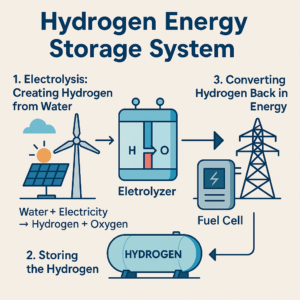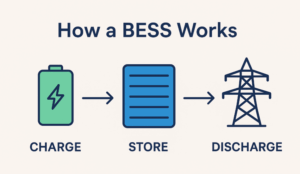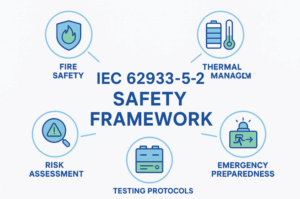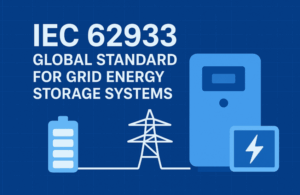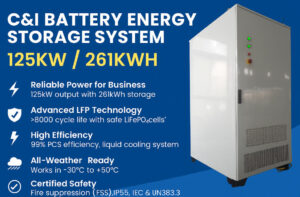20 Common Questions About Solar Power
As more and more people turn to solar power as a sustainable energy source, there are many common questions that arise about solar power. In this blog post, we will answer some of the most frequently asked questions about solar power to help you understand the technology and make informed decisions about incorporating solar power into your life.
What is solar power?
Solar power is the energy that is generated by the sun. It is a renewable and sustainable source of energy that can be harnessed through the use of solar panels, which convert the sun’s energy into electricity.
How do solar panels work?
Solar panels are made up of photovoltaic cells, which are made of semiconductor materials. When sunlight hits the cells, it creates an electric field that allows electrons to flow, generating electricity.
What are the benefits of solar power?
Solar power is a clean, renewable, and sustainable energy source that can help reduce carbon emissions and dependence on non-renewable energy sources. It can also help reduce electricity bills and provide energy independence.
How much do solar panels cost?
The cost of solar panels varies depending on several factors, including the size of the system, the type of panels used, and the location of the system. However, the cost of solar panels has been decreasing over time, making them more accessible to homeowners and businesses.
What is net metering?
Net metering is a billing arrangement that allows solar power users to sell excess energy back to the utility company. The excess energy is measured by a bi-directional meter, which allows the user to receive credits on their electricity bill for the energy they provide to the grid.
What is the lifespan of solar panels?
The lifespan of solar panels varies depending on the quality of the panels and the conditions they are exposed to. However, most solar panels have a lifespan of around 25-30 years, with some high-quality panels lasting up to 40 years.
Can solar panels work in cloudy weather?
Yes, solar panels can still generate electricity in cloudy weather, although their efficiency is reduced. However, solar panels work best in direct sunlight, so they are most effective in areas with abundant sunlight.
How much energy can solar panels generate?
The amount of energy that solar panels can generate depends on several factors, including the size of the system, the location of the system, and the efficiency of the panels. However, on average, a 1-kilowatt solar panel system can generate around 1,500 kilowatt-hours of electricity per year.
How can I determine if solar power is right for me?
Determining if solar power is right for you depends on several factors, including the cost of electricity in your area, the amount of sunlight your location receives, and the cost of installing a solar panel system. There are also several online tools and calculators available that can help you estimate the cost and benefits of a solar panel system for your home or business.
Are there any government incentives for solar power?
Yes, many governments offer incentives for solar power, including tax credits and rebates. These incentives can help reduce the cost of installing a solar panel system and make solar power more accessible to homeowners and businesses.
Do I need batteries to use solar power?
No, you do not necessarily need batteries to use solar power. Grid-tied solar power systems can be used without batteries, as excess energy can be sold back to the utility company through net metering. However, batteries can be used to store excess energy for later use, making the system more efficient and providing energy independence.
Can I use solar power during a power outage?
If you have a battery backup system installed, you can use solar power during a power outage. However, if you do not have a battery backup system, you will not be able to use solar power during a power outage, as grid-tied solar power systems are designed to shut off when the power goes out to protect utility workers who may be working on the grid.
Can I install solar panels on a flat roof?
Yes, solar panels can be installed on a flat roof using mounting systems designed specifically for flat roofs. However, the efficiency of the panels may be reduced due to the lack of tilt, so it is important to work with a professional to determine the best mounting system for your specific situation.
Can I install solar panels myself?
While it is possible to install solar panels yourself, it is not recommended. Solar panel installation requires specialized knowledge and equipment, and mistakes can be dangerous and costly. It is best to work with a professional solar panel installer who can ensure that your system is installed safely and efficiently.
What happens to solar panels at the end of their lifespan?
At the end of their lifespan, solar panels can be recycled or disposed of. The recycling process involves separating the different components of the panels and recycling them separately. Many solar panel manufacturers have programs in place to recycle old panels, and there are also specialized recycling companies that can handle solar panel recycling.
Can solar panels be damaged by hail or high winds?
While solar panels are designed to be durable and withstand harsh weather conditions, they can be damaged by hail or high winds. However, most solar panels are tested to withstand hail up to a certain size and high winds up to a certain speed, and many manufacturers offer warranties that cover damage from extreme weather.
How do I maintain my solar panel system?
Solar panel systems require very little maintenance, but it is important to keep them clean and free of debris. It is also important to have your system inspected and serviced regularly by a professional to ensure that it is operating at peak efficiency.
Can I add more solar panels to my system later?
Yes, you can add more solar panels to your system later if you have the space and the electrical capacity to do so. However, it is important to work with a professional to ensure that your system is designed and installed correctly to accommodate the additional panels.
Can solar panels increase the value of my home?
Yes, solar panels can increase the value of your home. Studies have shown that homes with solar panel systems sell for more than homes without them and that buyers are willing to pay a premium for homes with solar panels.
What happens if I produce more energy than I use?
If you produce more energy than you use, you can sell the excess energy back to the utility company through net metering. However, it is important to check with your utility company to determine their policies and regulations regarding net metering.
In conclusion, solar power is a clean, renewable, and sustainable energy source that can help reduce carbon emissions, reduce electricity bills, and provide energy independence. While there are many common questions about solar power, it is important to work with a professional to determine if solar power is right for your specific situation and to ensure that your system is installed and maintained correctly. With the right knowledge and expertise, solar power can be a great investment in a sustainable future.

